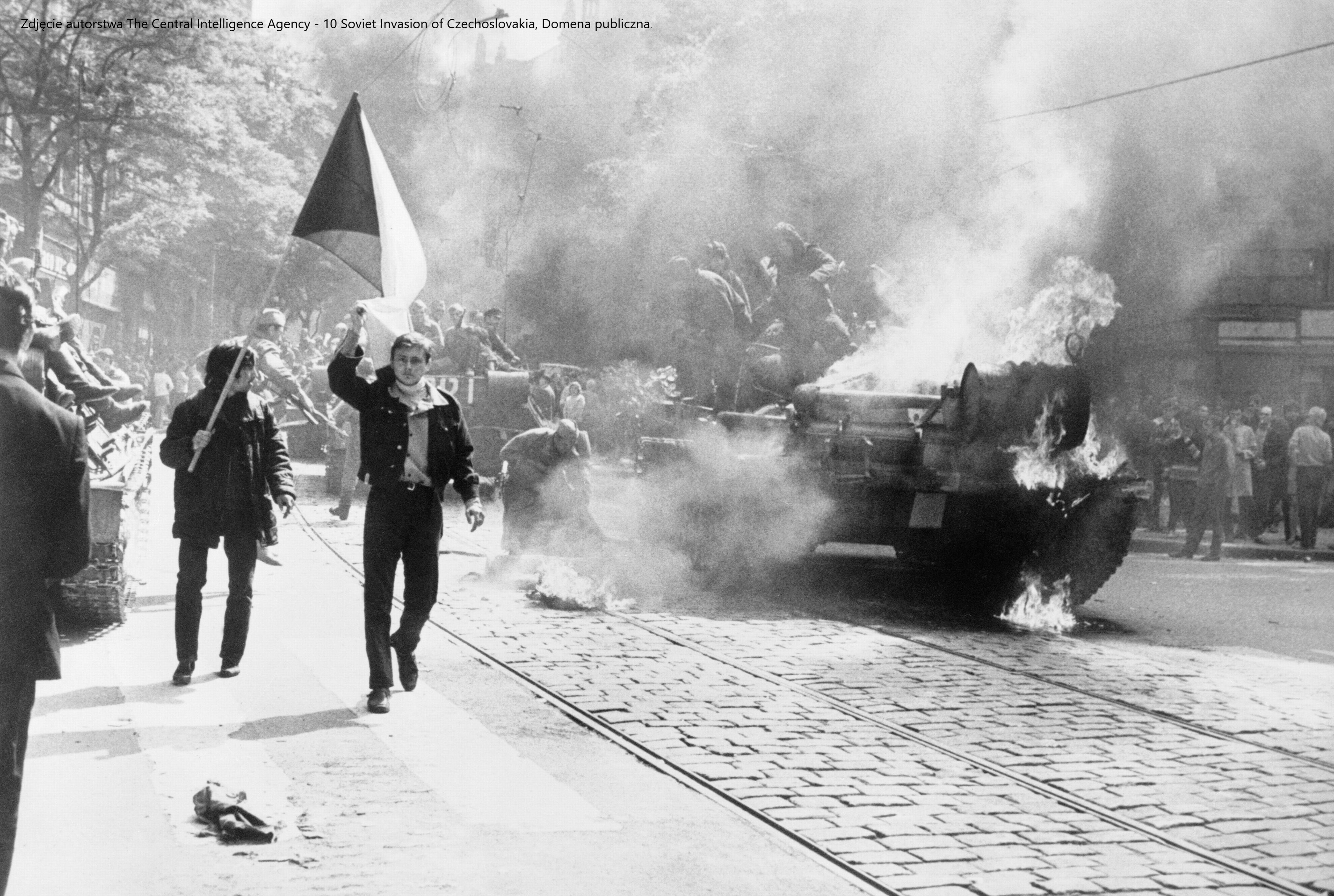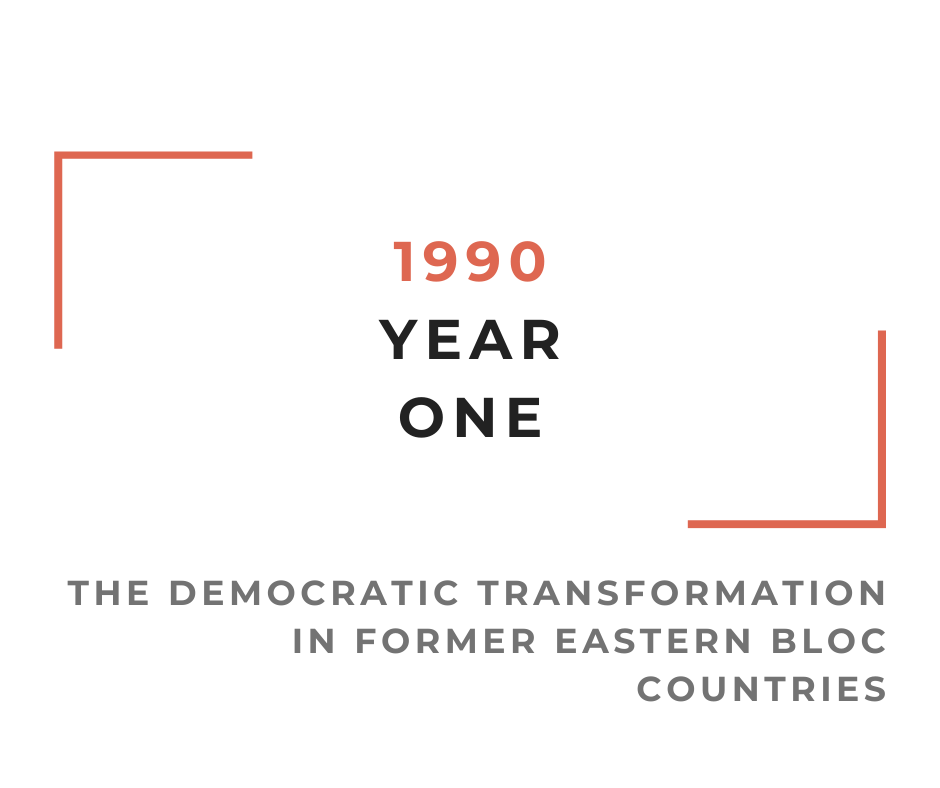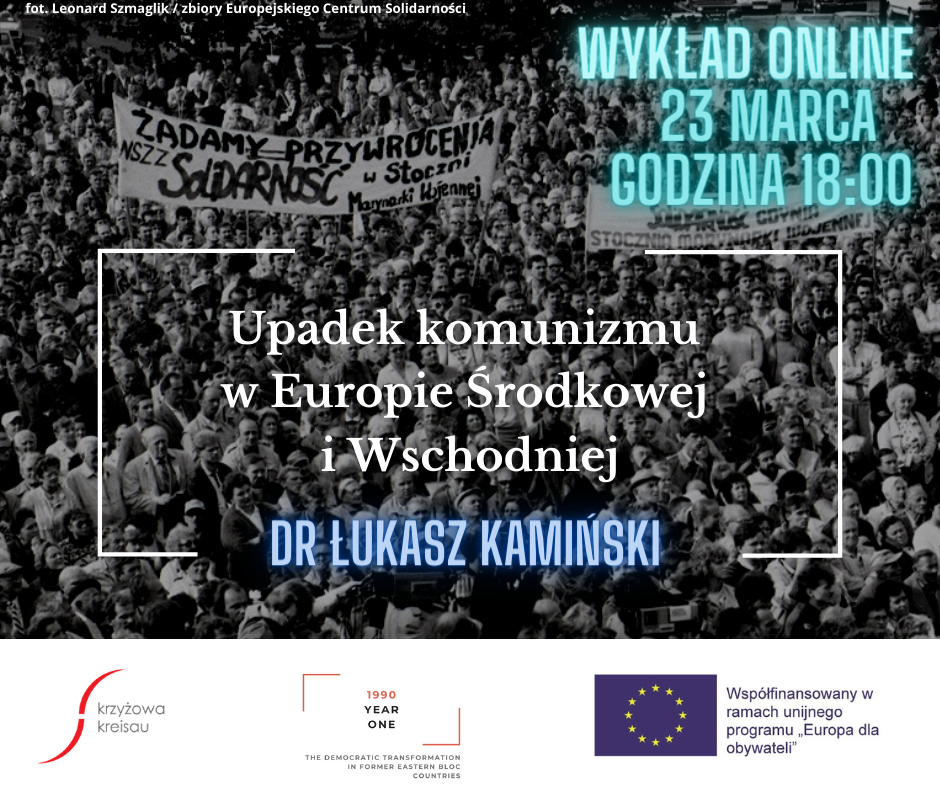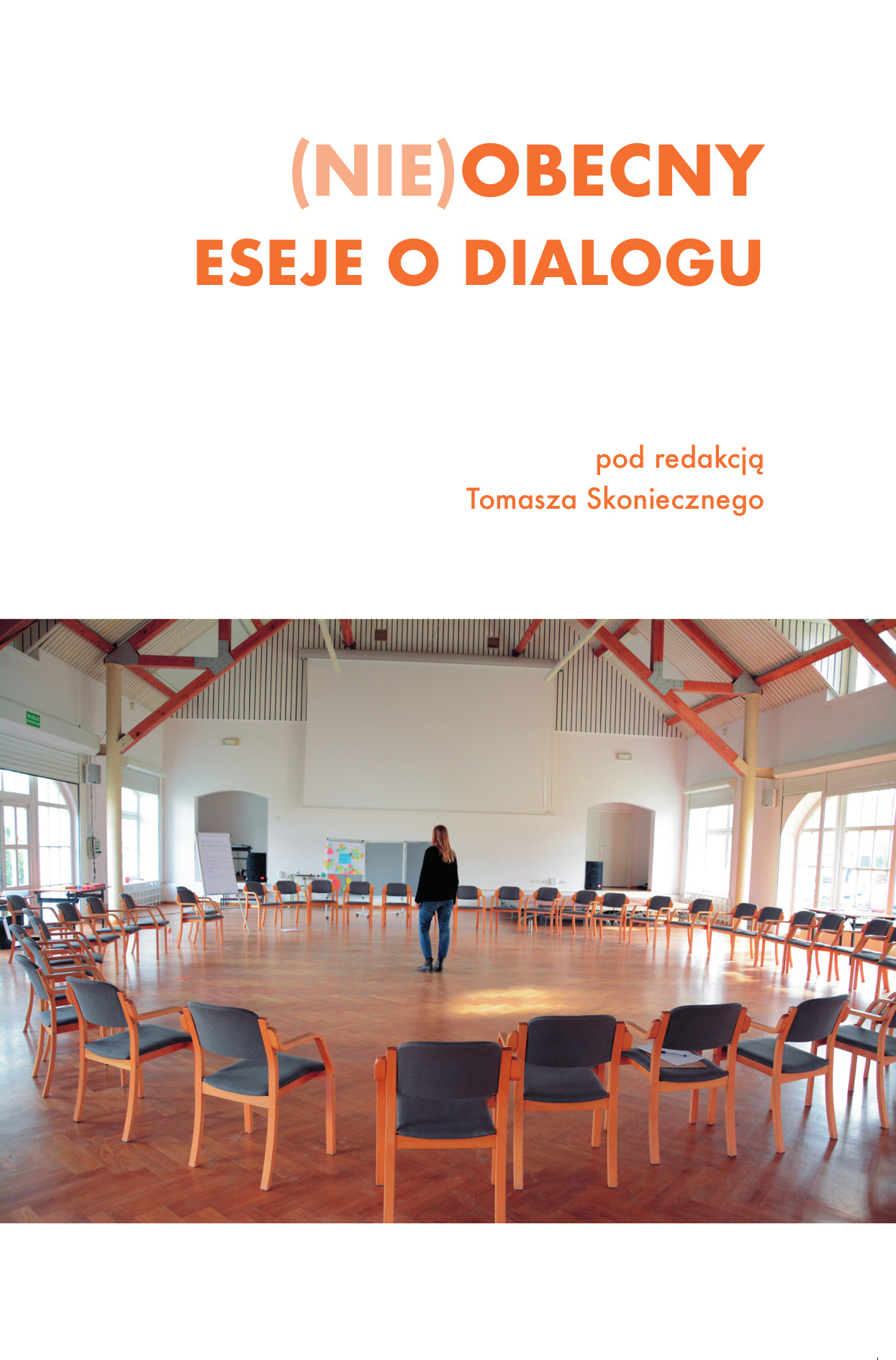
The Krzyżowa Foundation started cooperation with the Czech organisation Post Bellum in implementing the project "Together over the borders of totalitarian systems" (Společně mezi hranicemi totalitních systemu), which aims to present the reaction with which the armed suppression of the Prague Spring by Warsaw Pact troops in August 1968 met in Czechoslovakia and Poland.
In the framework of the project, relations of Czech witnesses of these events and Polish participants and organisers of protests and solidarity actions will be recorded. The recordings will be used to prepare a documentary film, presented in the Czech Republic and Poland in the autumn of 2021.
Read more: The 1968 invasion of Czechoslovakia through the eyes of Poles and Czechs || Documentary Project
 The year 1990 was a turning point in overcoming the communist heritage and shaping democracy in Central and Eastern European (CEE) countries. That year brought the first fully free parliamentary, presidential and local government elections in most of the CEE countries. It was also in 1990 that the two German states were reunited, which had (still has) consequences not only for the Germans themselves, but also for their eastern neighbours, Poles, Czechs and Slovaks (then: Czechoslovakia), who had to re-establish their relations with their old/new neighbour - with whom they also had an unsettled history dating back to World War II. The year 1990 was also the beginning of a new era for the Baltic States, such as Lithuania, which was the first country of that region to declare its independence after 50 years of Soviet rule.
The year 1990 was a turning point in overcoming the communist heritage and shaping democracy in Central and Eastern European (CEE) countries. That year brought the first fully free parliamentary, presidential and local government elections in most of the CEE countries. It was also in 1990 that the two German states were reunited, which had (still has) consequences not only for the Germans themselves, but also for their eastern neighbours, Poles, Czechs and Slovaks (then: Czechoslovakia), who had to re-establish their relations with their old/new neighbour - with whom they also had an unsettled history dating back to World War II. The year 1990 was also the beginning of a new era for the Baltic States, such as Lithuania, which was the first country of that region to declare its independence after 50 years of Soviet rule.
Read more: Series of online lectures || Project “1990 / Year One. The democratic transformation in former...

On 23 March, Dr Łukasz Kamiński, historian from the University of Wrocław, gave a lecture entitled 'The fall of communism in Central and Eastern Europe'. The meeting was attended by 144 students and teachers.
It was the first of a series of lectures organised by the Krzyżowa Foundation for Mutual Understanding in Europe, which aim to present the circumstances of the historical breakthrough which led to the collapse of the communist system and the start of democratic changes in Central and Eastern Europe.
Read more: REPORT || Online lecture: The Fall of Communism in Central and Eastern Europe [audio]

(Un)present. Essays on Dialogue, edited by Tomasz Skonieczny, Krzyżowa Foundation for Mutual Understanding in Europe, Wrocław 2020
"(Un)present. Essays on Dialogue" is the latest publication issued by the Krzyżowa Foundation and Konrad Adenauer Foundation in Poland. It is not only an attempt to show the condition of dialogue in the contemporary world and to present experiences and difficulties which can be encountered professionally while working on behalf of civic education, but also - we hope - an inspiration to oppose the culture of polarisation and dispute.
Excerpt from the Introduction:
(...) The events taking place in Poland, Germany, as well as in many other European countries, which we have witnessed in recent years, clearly indicate that we are less and less inclined to display a similar attitude. Much more often we can observe an increase in extreme tendencies, which are also manifested by a high aversion to respecting those who present different views. One of the signs of the increasing polarisation of societies is the intensification of activities aimed at building a strong group identity - based on the relation "us" - "them". This leads to attempts not only to build opposition with people from outside the community, but even to the exclusion of those who do not fit into the imagined model.
Read more: PUBLICATION || (Un)present. Essays about Dialogue, ed. by Tomasz Skonieczny







